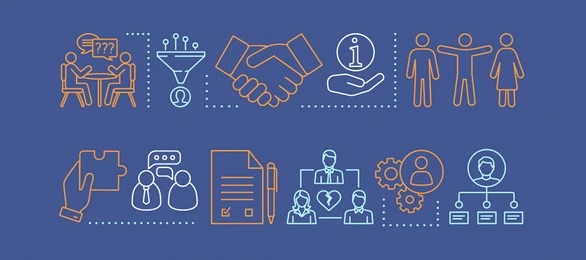
Collaborative law is another approach to resolving divorce-related issues. In a collaborative law approach, the primary requirement is that both parties must agree to participate and not to end up in court. The voluntary process is initiated when the couple signs a contract (called the “participation agreement”), binding each other to the process and disqualifying their respective lawyer’s right to represent either one in any future family related litigation. Another requirement is that the lawyers for both sides must be fully trained Collaborative Practice lawyers.
Anna Boulman has been trained in collaborative law methods and approaches. As with every matter, our firm is committed to achieving solutions that are in the best interests of our clients. And in collaborative law, Ms. Boulman combines her skills and experience with those of therapists, coaches, financial advisors, and other attorneys and professionals in order to achieve those results.
Unlike going to court where a judge may listen to both sides and then hand down a decision – which neither party may like because no one really ‘wins’ in Family Law – the Collaborative approach entails mutual problem-solving by all the parties which in turn leads to the final separation agreement.
What is Collaborative Divorce?
A customized, respectful alternative to traditional adversarial divorce is available to you and your spouse. Collaborative divorce or collaborative separation refers to the use of an out-of-court process that addresses the emotional, financial and legal issues that arise as your family transitions from one household to two.
Collaborative divorce may seem similar to mediation and other out-of-court resolution methods, the key difference is the written agreement the spouses and lawyers sign at the beginning.
